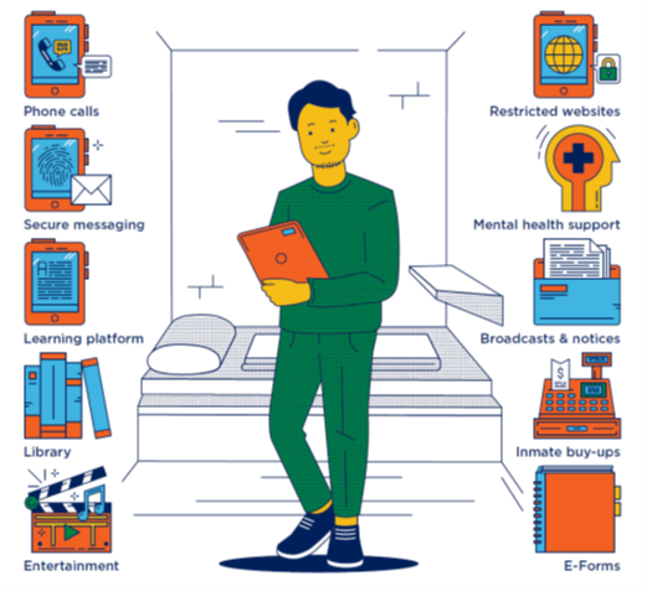In 2020, Corrective Services NSW piloted in-cell digital technology at two NSW Correctional Centers as part of a program aimed at addressing the NSW Premier's priority to reduce reoffending by five percent by 2023.
Following the success of the pilot, and after securing funding from the Digital Restart Fund in 2021/22, the Offender Digital Services platform is now being implemented across the state. By mid-next year, a total of 28 Correctional Centers will feature the in-cell devices. A total of $40.42 million has been contributed by the Digital Restart Fund to support 16 centers directly, ensuring the purpose-built technology will be implemented by June 2023.
The Offender Digital Services program aims to leverage digital technology to transform rehabilitation in prisons across the state. It is anticipated, the digitisation of services and programs will increase intervention opportunities, boost program dosage, promote self-efficacy through education and improve communication with support networks. Inmates transitioning back into the community will be assisted, with the devices helping remove barriers to successful reintegration, mitigating the likelihood of reoffending.
The scheme utilises secure devices that have been purpose-built for prison use and operate on a highly secure network. These devices are tamperproof, allowing restricted access to approved websites, services and applications including the Offender Telephone System. The cost of the tablets is offset by a small levy applied to prisoners every time they make a call to a mobile telephone.
Acknowledging delays due to the pandemic and recent flood disasters, Acting Director of the Reducing Reoffending Program Management Office, Renee Van Aaken said Corrective Services is excited to now be progressing the tablet roll-out.
"It's about giving us the confidence to navigate the digital world. When we get out, we will know how to apply for Centrelink, submit a job or housing application. We will be familiar with how it all works and that can't be taken for granted," one inmate said.
In addition to improving digital literacy, one of the great benefits of the offender tablets has been improved access to telephones. The tablets permit prisoners to connect securely and safely with support networks during in-cell time.
Maintaining contact with family and friends has been positively associated with enhanced prisoner wellbeing, improvements in connectedness and improved reoffending outcomes.
"I wish they had tablets when I first came into custody. I struggled and felt so isolated, lonely, and scared. Now I feel connected to the outside world by keeping in contact with the news and my family, my daughter and Mum. I am thinking about my future, and I am more optimistic about getting a job," one female prisoner has stated.
Offender Tablets also benefit staff particularly when inmates become self-sufficient and the requirements for a staff intermediary in everyday transactions is removed.
Ms Van Aaken has observed that efficiencies and time saving benefits accruing from these new processes, allow Correctional Centre staff to spend time on more meaningful interactions with inmates.
"Risk of harm is minimised as inmates can now carry out tasks independently, such as checking personal information and making phone calls. These changes incentivise pro-social behaviour among inmates, which contributes to reduced risk to officer safety," Ms Van Aaken said.
The roll-out of Offender Digital Services in NSW prisons is a prime example of the Digital Restart Fund's capacity to support teams across NSW Government to become leaders in the digital world.
Corrective Services NSW is shaping positive changes to deliver quality outcomes not only for people in custody but the wider community, and they are only getting started. There are more developments in scope for this project. We will keep you updated on the next milestone in the coming months.
